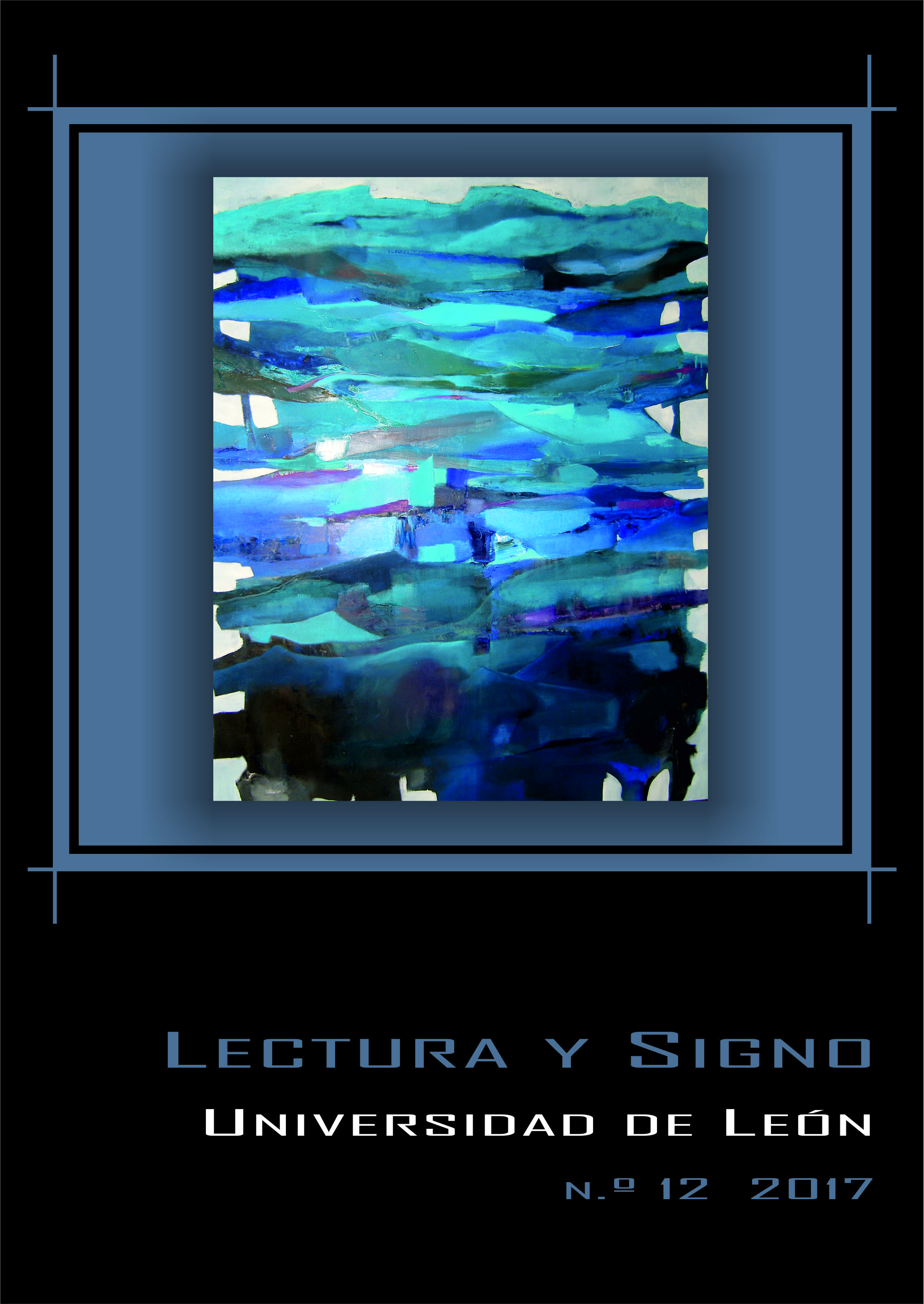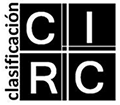Tu rostro con la marea: una tragedia con máscaras pero sin héroe
DOI:
https://doi.org/10.18002/lys.v0i12.5309Palabras clave:
Galdós, Stendhal, Maupassant, Ajmátova, White, Tragedia, TragedyResumen
Tu rostro con la marea es una metaficción historiográfica a modo de novela de memoria cuyo personaje principal, Ángel Bigas, se construye una imagen de héroe decimonónico. Incapaz de lidiar con la realidad,forja su vida según los mundos de escritores como Galdós, Maupassant y Stendhal, y según el modelo de amor romántico platónico hacia una mujer rusa, Olga Rykova Anneski. Incapaz de entenderla también a ella, la encaja dentro de las tesis del marqués de Custine respecto al pueblo ruso y sus tradicionales ataduras. Ella, por su parte, es el alter ego de la poeta rusa Ajmátova, y oculta un espíritu bolchevique tras su máscara. El análisis de sus figuras revela la relación entre la historia y la ficción, el carácter de tragedia clásica de la novela, el papel de las expectativas en la percepción, y el correlato de ambos con la historia de Europa.
Tu rostro con la marea is piece of historiographical metafiction following the model of a memory novel
around its main character. Incapable of facing reality, Ángel Bigas projects the image of a nineteenth
century hero according to the lives and works of Galdós, Maupassant and Stendhal while fueling his
aura with rumors and legends. His belief in the idiosyncrasy of the Russian people as understood by themarquis of Custine also makes him fail understanding his idealized love, Olga Rykova Anneski. She is also the alter ego of a very different kind of writer: the Russian Bolshevik poet Akhmatova. The analysisof the two figures as literary constructs reveals the relation between history and fiction, the natureof the novel as a classical tragedy, the role of expectations in perception and the direct relation of bothcharacters with the history of Europe.
Descargas
Citas
BALLANO, I., España en Stendhal: imagen sociocultural y literaturización de un mito, Kasel, Edition Reichenberger, 1997.
BARTHES, R., The Pleasure of the Text, New York, Hill and Wang, 19
BATTEN, S. Z., «The Moral meaning of the War», The Biblical World, 52. 3 (1918), pp.
-279. Disponible en:
http://www.jstor.org/stable/3135990 [Consultado 27-01-2017].
BROEMEN,M.,War and Revolution in St. Petersburg: Modernist Links in the Poetry of Edith Södergran and Anna Andreevna Akhmatova, Academic Dissertation, Helsinki, Helsinki U P, 2009.
CARR, R., Historia de España, José Luis Gil Aristu (trad.), Barcelona, Quinteto, 2006.
(Original: Spain. A History, Oxford, Oxford UP, 2000).
CHOU, M., Greek Tragedy and Contemporary Democracy, London, BloomsburyAcademic,
CERTAU, M. DE, The Writing of History, Tom Conley, trans., New York, Columbia UP,
ECO, U., Baudolino, Lumen, 2011.
FISHWICK, M., The Hero in Transition, Browne, Ray B. & Fishwick (eds.), Bowling Greene, Ohio: Bowling Green University Popular Press, 1983, pp. 5-13.
GARCÍA DE CORTÁZAR, F., Tu rostro con la marea, Madrid, Planeta, 2013.
GOLDBERG, C., «The Role of Passion in the Transformation of Anti-Heroes», Journal of
Evolutionary Psychology, 9 (1989), pp. 2-16.
HERZBERGER, D. K., Narrating the Past. Fiction and Historiography in Postwar Spain, Durham and London, Duke UP, 1995.
HOLSTEIN, S. C., «The Power of Zero: Anti-Heroes on the Outside», The Image of the Hero: Selected Papers of the Society for Interdisciplinary Study of Social Imagery, 2004, pp. 378-380.
HULBERT, H. S., «“Moth Eaten Personalities” from War-Worn “Moth Eaten” Brains», Journal of Criminal Law and Criminology, 1931 pp. 75-77.
HUTCHEON, L., A Poetics of Postmodernism: History, Theory, Fiction, New York, Routledge, 1988.
JONES, M. (ed.), Fake? The Art of Deception, London, British Museum Publications, 1990.
OVIEDO, A., «Entrevista a Fernando García de Cortázar», Revista Deusto, 30, 120 (2013),
pp. 34-35.
PAWLOWSKY, C. Y WAYNE W. MELANSON, «Heroes, Anti-Heroes and Fools: A look at
Television Commercials Directed toward Men», en The Image of the Hero:
Selected Papers of the Society for Interdisciplinary Study of Social Imagery, 2004, pp.
-295.
PIHLAINEN, K., «The Confines of the Form: Historical Writing and the Desire that It Be what It Is Not», en Tropes for the Past: Hayden White and the History/literature Debate, Korhonen, Kuisma, ed, Rodopi, 2006, pp. 55-67.
PRADA, J. M. de, Las máscaras del héroe, Madrid, Valdemar, 1997.
RAMÓN GARCÍA, E., «Las máscaras del Héroe. Radiografía de un antihéroe», Symposium, 62. 4 (2009), pp. 275-286.
RAMÓN GARCÍA, E., «El espíritu liberal y el ocaso de la equiparación de la mujer en Las máscaras del héroe de Juan Manuel de Prada», Siglo XXI, 5 (2007), pp. 233-247.
ROBERTS, J. M., Historia Universal IV. De la Primera Guerra Mundial a la actualidad, Madrid, RBA, 2009.
SPENGLER, O., The Decline of the West 1918-22, Arthur Helps y Helmut Werner (eds.), New York, Oxford UP, 1991.
STRONG, T. B., «Nietzsche and the Political. Tyranny, Tragedy, Cultural Revolution, and
Democracy», Journal of Nietzsche Studies, 35–36 (2008), pp. 48-66.
WHITE, H., «Historical Discourse and Literary Writing», en Tropes for the Past: Hayden
White and the History/Literature Debate, Korhonen Kuisma (ed.), Rodopi, 2006.
WHITE, H., Metahistory, Baltimore: The Johns Hopkins University Press, 1975.
ZAVALA, I. (coord.), Romanticismo y Realismo. Historia y Crítica de la Literatura Española, vol. V, Barcelona, Editorial Crítica, 1982.
Descargas
Publicado
Cómo citar
Número
Sección
Licencia
Derechos de autor 2017 Emilio Ramón García

Esta obra está bajo una licencia internacional Creative Commons Atribución-NoComercial-CompartirIgual 4.0.
Los autores que publican en esta revista están de acuerdo con los siguientes términos:
- Los autores ceden de forma no exclusiva los derechos de explotación (reproducción, distribución, comunicación pública, transformación) a la Universidad de León, por lo que pueden establecer, por separado, acuerdos adicionales para la distribución no exclusiva de la versión de la obra publicada en la revista (por ejemplo, alojarlo en un repositorio institucional o publicarlo en un libro), con un reconocimiento de su publicación inicial en esta revista.
- Este trabajo se encuentra bajo la Creative Commons Attribution-NonCommercial-ShareAlike 4.0 International License. Puede consultarse desde aquí la versión informativa y el texto legal de la licencia.
- Se permite y se anima a los autores a difundir electrónicamente las versiones pre-print (versión antes de ser evaluada) y/o post-print (versión evaluada y aceptada para su publicación) de sus obras antes de su publicación, ya que favorece su circulación y difusión más temprana y con ello un posible aumento en su citación y alcance entre la comunidad académica.









